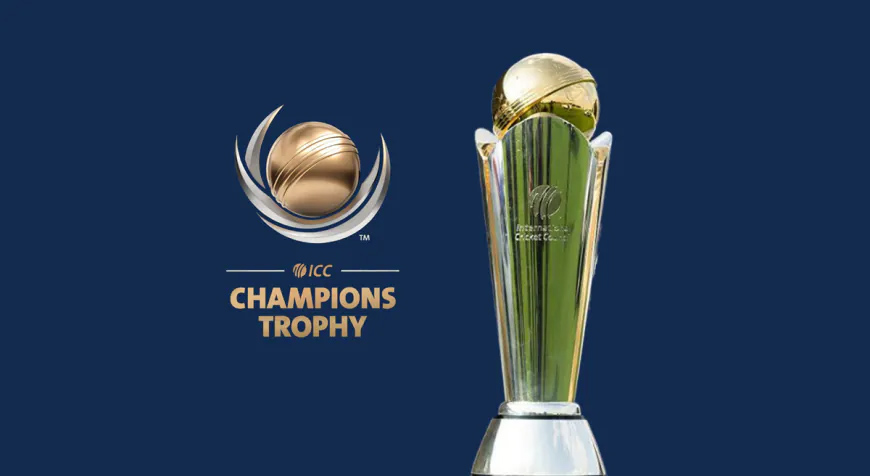Dubai/Karachi, Feb 18: Intrigue, uncertainty, and backstage drama have surrounded the ICC Champions Trophy well before the tournament officially begins. Over the next three weeks, starting with the initial match between Pakistan and New Zealand in Karachi, excitement is sure to build.
Eight teams are set to compete for a trophy that is often deemed harder to secure than the World Cup, while also aiming to write new chapters in their cricketing narratives.
India will be battling in Dubai, while the other teams will largely be based in Pakistan, marking the first ICC event hosted there since the 1996 World Cup.
Significant challenges had to be overcome to bring this tournament back after an eight-year hiatus. This event gains additional importance amid ongoing discussions about the future relevance of ODI cricket, which is finding it hard to carve out a space in the face of T20’s popularity and the loyalty shown towards Test formats.
No recent cricketing competition has been as affected by deep-seated geopolitical tensions, resistance from administrative bodies of key teams, and the nail-biting anxiety surrounding the readiness of venues in the primary hosting nation.
This sense of chaos is reminiscent of the 90s when cricket in the subcontinent resembled a hastily organized festivity.
However, all the pre-tournament unease will fade once the teams take the field, with Pakistan and New Zealand leading the charge.
For a quick reminder, Pakistan clinched the last Champions Trophy title in 2017.
The opening match promises an intriguing encounter—Pakistan, an incredibly talented yet unpredictable side, faces off against a New Zealand team known for its structured approach.
The highlight of the tournament will undeniably be the match on February 23, where India goes up against Pakistan, a clash that brings with it memories, heightened emotions, political narratives, and the inevitable social media frenzy.
This spectacle will take place in Dubai, as India maintains its position of not participating on Pakistani soil due to security concerns.
As for legends like Kohli and Rohit, they will be keen to make their mark. Both of these players have been iconic figures in the game for over a decade and a half.
Few can rival their accomplishments and presence in modern cricket. However, as they approach the final stages of their careers, the desire to depart with remarkable memories is palpable.
It’s challenging to envision Kohli and Rohit remaining in India’s ODI setup post-Champions Trophy, regardless of the tournament’s outcome.
Their performance here might even influence their future in Test matches, especially as a less-than-stellar showing could lead selectors to rethink their roles ahead of India’s tour of England in June.
Similarly, a failure to secure the Champions Trophy will place Gautam Gambhir’s position as head coach under scrutiny.
While Gambhir may have earned a temporary sigh of relief following India’s dominance over England in the recent home series, the shadows of the team’s earlier struggles against New Zealand and Australia will linger.
However, winning a global trophy would significantly bolster his position.
From India’s perspective, they will be eager to reclaim their first ICC trophy in the 50-over format since their triumph in the 2013 Champions Trophy under the captaincy of Mahendra Singh Dhoni.
This would be an ideal farewell gift for Kohli and Rohit, paving the way for emerging stars like Shubman Gill to lead India into the future.
As for the competition, India plays a brand of ODI cricket that positions them as favorites for the tournament. They have adopted an aggressive style and possess a diverse lineup teeming with talent.
However, such assumptions can easily falter due to a single poor moment or session, similar to how India faltered in the 2023 World Cup final against Australia after a subpar batting display.
The Australians, despite missing their top bowlers Pat Cummins, Mitchell Starc, and Josh Hazlewood, still boast a strong batting lineup that meets the demands of ODI cricket.
Once feared in white-ball cricket, England has slipped a bit, with age and form affecting some of their key players.
Will veterans like Jos Buttler, Joe Root, and Liam Livingstone find one last surge of brilliance, or will newer stars like Harry Brook and Ben Duckett pave the way forward? Meanwhile, New Zealand embarks on a new journey following the retirements of Trent Boult and Tim Southee, with Kane Williamson as their key player.
South Africa shares a similar objective. Having last won the ICC Knockouts Trophy in 1998, the Temba Bavuma-led team is hoping for a turn of fortunes.
For this to occur, the Proteas need to maintain mental fortitude during high-pressure situations.
Conversely, Pakistan mustn’t let their match against India become an obsession; if they manage to focus, they become a formidable side.
Their pace attack is world-class, complemented by aggressive batsmen like Fakhar Zaman and Salman Ali Agha.
Afghanistan has transformed into a potent white-ball team, capable of applying immense pressure on opponents, led by stars like Rashid Khan and Rahmanullah Gurbaz.
As for Bangladesh, while they might have faded in recent cricket discussions, could they orchestrate a surprise akin to their 2007 World Cup performance? That would certainly pay homage to a tournament that has faced numerous disruptions. Let the games begin. (PTI)


Leave a Reply